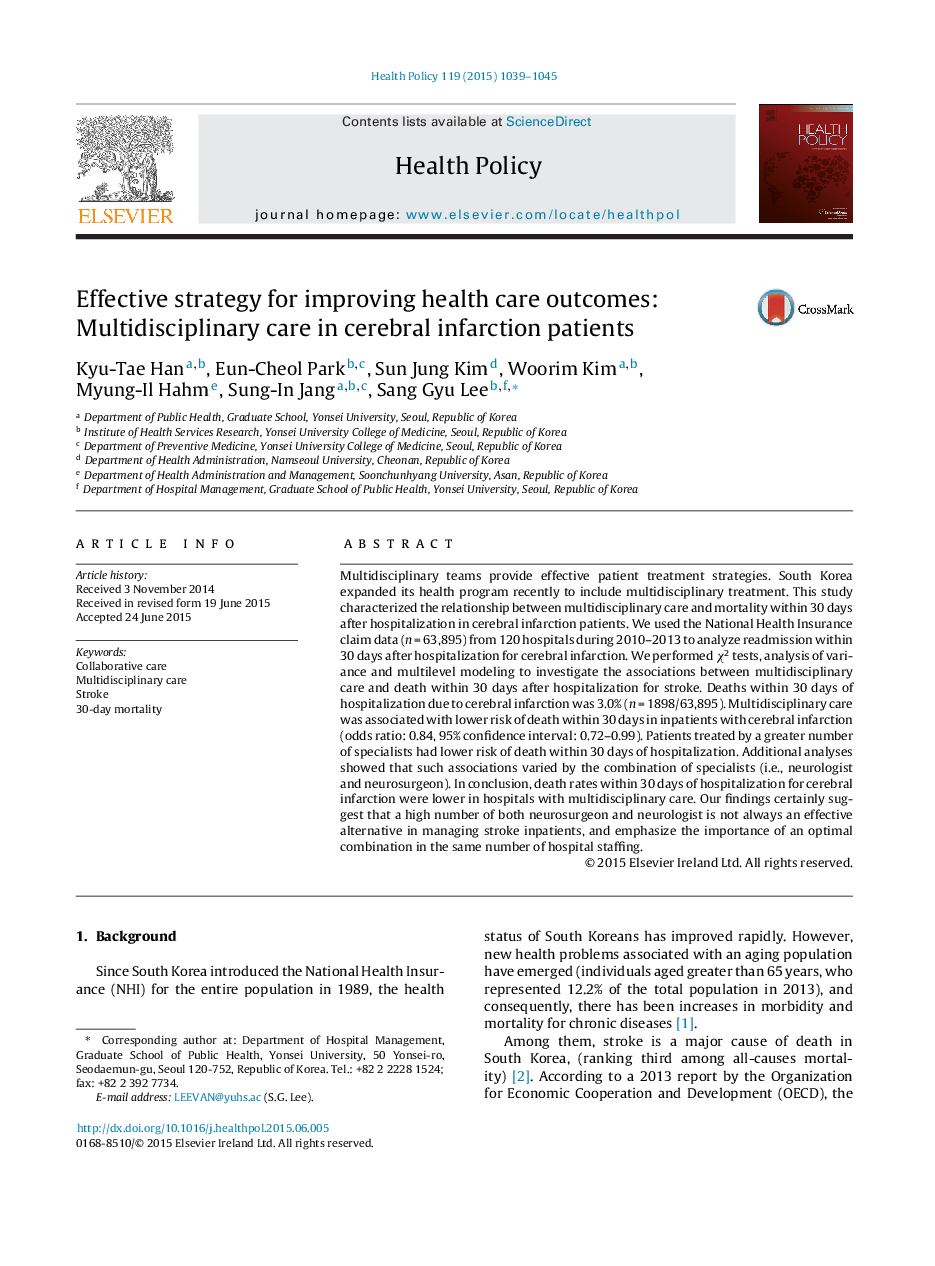| Article ID | Journal | Published Year | Pages | File Type |
|---|---|---|---|---|
| 6239399 | Health Policy | 2015 | 7 Pages |
â¢National health insurance claim data used in our study.â¢Multidisciplinary care had a significant association with fewer 30 days mortality.â¢Incremental outcomes were reduced when specialists exceeded the threshold number.
Multidisciplinary teams provide effective patient treatment strategies. South Korea expanded its health program recently to include multidisciplinary treatment. This study characterized the relationship between multidisciplinary care and mortality within 30 days after hospitalization in cerebral infarction patients. We used the National Health Insurance claim data (n = 63,895) from 120 hospitals during 2010-2013 to analyze readmission within 30 days after hospitalization for cerebral infarction. We performed Ï2 tests, analysis of variance and multilevel modeling to investigate the associations between multidisciplinary care and death within 30 days after hospitalization for stroke. Deaths within 30 days of hospitalization due to cerebral infarction was 3.0% (n = 1898/63,895). Multidisciplinary care was associated with lower risk of death within 30 days in inpatients with cerebral infarction (odds ratio: 0.84, 95% confidence interval: 0.72-0.99). Patients treated by a greater number of specialists had lower risk of death within 30 days of hospitalization. Additional analyses showed that such associations varied by the combination of specialists (i.e., neurologist and neurosurgeon). In conclusion, death rates within 30 days of hospitalization for cerebral infarction were lower in hospitals with multidisciplinary care. Our findings certainly suggest that a high number of both neurosurgeon and neurologist is not always an effective alternative in managing stroke inpatients, and emphasize the importance of an optimal combination in the same number of hospital staffing.
